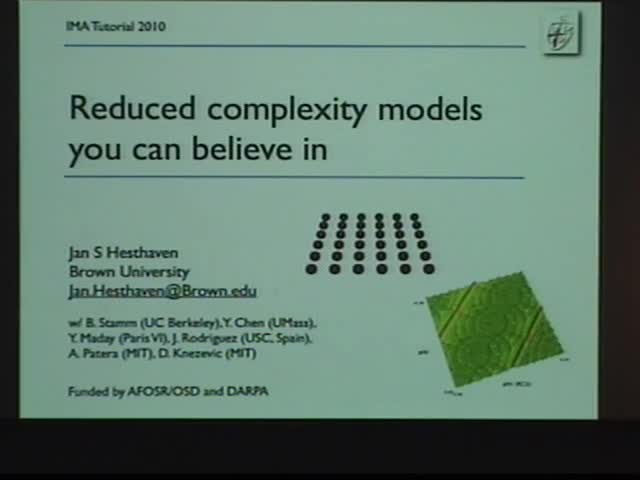Reduced complexity models you can believe in
Presenter
October 31, 2010
Keywords:
- Complexity, effectivity
MSC:
- 14Q20
Abstract
The development and application of models of reduced computational
complexity is used extensively throughout science and engineering to
enable the fast/real-time modeling of complex systems for control,
design, or prediction purposes. These models, while often successful
and of undisputed value, are, however, often heuristic in nature and
the validity and accuracy of the output is often unknown. This limits
the predictive value of such models.
In this tutorial we will review recent and ongoing efforts to develop
reduced basis methods for which one can develop a rigorous a
posteriori theory. The approach aims at formulating reduced models for
parameterized linear partial differential equations. We will outline
the theoretical developments of certified reduced basis methods,
discuss an offline-online approach to ensure computational efficiency,
and emphasize how an error estimator can be exploited to construct an
efficient basis at minimal computational off-line cost. We also
discuss recent improvements on the efficiency of the computation of
the lower bounds for the error, using an improved Successive
Constraint Method. The discussion will draw on examples based both on
differential and integral equations formulations.
The performance of the certified reduced basis model will be
illustrated through several examples to highlight the major advantages
of the proposed approach as well as key open challenges in the current
approach.
Time permitting we will extend the discussion to include problems with
parameterized geometries and the introduction of reduced element
methods to enable the efficient and accurate modeling of networks and
geometrically complex configurations.
